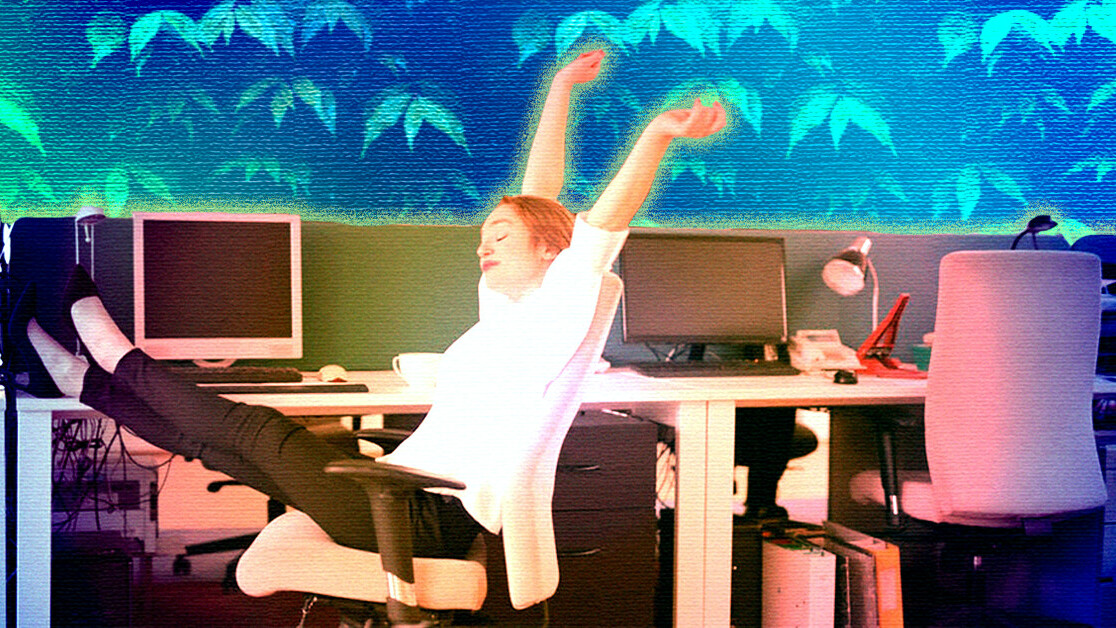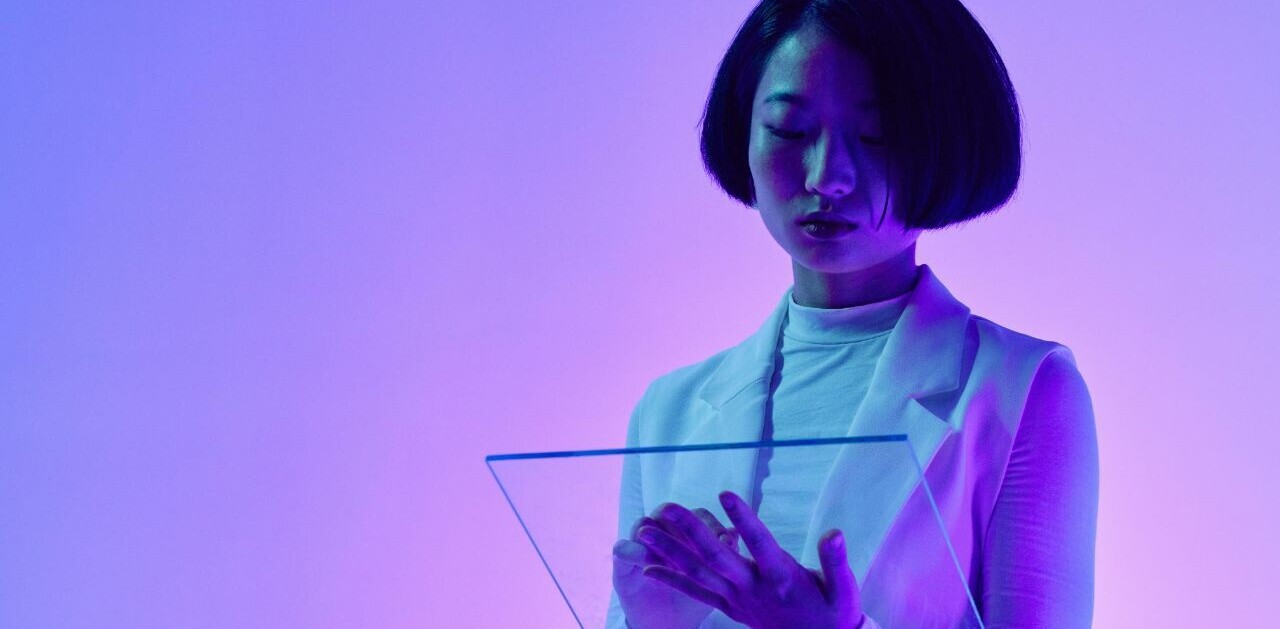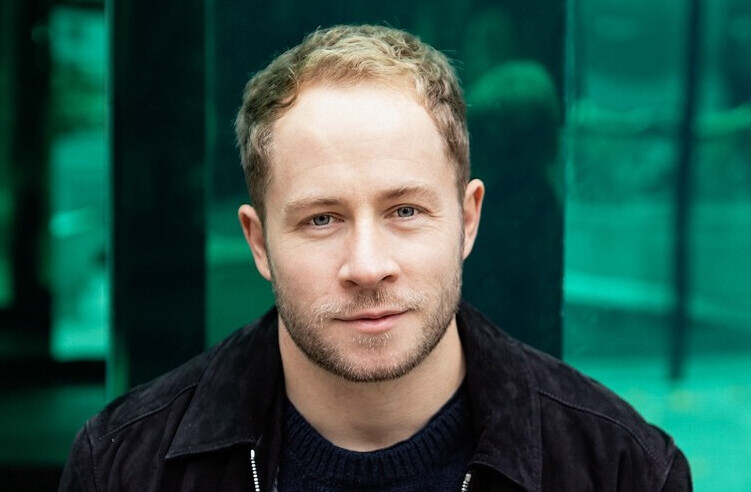
Did you know Moulsari Jain, the author of this piece, is moderating at TNW2020 this year? Join the Form Track at TNW2020 to explore how technology is changing how we create, experience, and share art.
I never took a proper vacation for most of my life. Even when I was traveling, usually to see family or friends, I was on. Even on the weekends, or in the evenings, I was on. Even when I went out for drinks, I was on.
One of the perils of being a one-man business is that you are your business, and there’s no one to pick up the slack if you switch off, so you’re always on, because you never know when an opportunity shows up.
The only time I switched off completely was when I went to a meditation retreat. And although my phone and email were off, I was meditating for 10 days, which is a nice break from the rest of life, but it’s definitely not a vacation.
I used to think it’s the best thing ever to do what you love and never feel like you’re working. The closer I got to choosing the projects I wanted and saying no to the boring ones, the more intensely I worked. I averaged four hours of sleep a night at one point. Because working became more and more fun. And I never wanted to stop.
And then I burnt out.
I didn’t know you could burnout doing what you love
I decided to take a sabbatical for a year, and spent part of it in London, writing, and making contacts in the art world, my next ambition, and developing a couple of personal art projects. Towards the end of the year, I freaked out about not having accomplished anything all year, so I did a speaking engagement in London, I did a public art installation in New York, Amsterdam, London, and Paris, and I created and delivered a 10-week workshop to Live with Passion – without quitting your job. I also created a kind of mastermind group with five women. I didn’t make a lot of money at all, but looking back, I didn’t exactly take a lot of time off. I was still on the whole time.
The following year, I felt ready to get back in the game, and got a call from an old client for a big project — and fun as it was to do, and glad as I was to make some money again, by the second quarter of the year, I really felt my burnout seething in my brain. A month later, I was melting down. By the summer, the depression set in. By fall, I was in therapy.
My mental wellbeing
Depression, much like many other illnesses, forces the body to slow down and take rest. I felt way too tired to do anything, really. Work aside, I could hardly socialize, or hold a real conversation. To be honest, I started measuring successful days as the ones that I got out of bed, got showered, and made myself some food. My best friend was constantly on call to help me get through the day, even when he was at work. It was exhausting, for me and everyone around me.
I felt like I was in a black hole of time and space. No sign of light, or lightness. Just cold, heavy darkness.
And my existence stuck inside it. And every strand of life in and around me being sucked away into the abyss, until it was no more than a distant memory, someone else’s dream that I once heard about.
For months, I fought hard, armed with the guilt of wasting so much time and not having anything to show for it. Eventually I realized I was just making myself even more tired. So I started to give in, and only felt guilty every second day, then every third.
And in between I started to find pockets of time to be a teenager in summer vacation again. Free to do anything and nothing all day, sleep, eat, read, watch movies, hang out with friends, soak up sunshine, do yoga when I wanted to move, look at art without an agenda, order takeout when I didn’t want to cook, and lay around a whole bunch, just daydreaming, or wondering at the huge gaping hole in my head. I stopped writing, I stopped planning, I stopped thinking about my career. I stopped wondering if I’d ever find a partner. Most of the time, I was too tired to think at all.
Finding freedom
But when I did find a bit of energy, I was just grateful to be aware of the freedom of the moment I was in. To feel like I was in a summer vacation once again.
I remember my school summer vacations as a kid. I remember having tons of holiday homework, and summer workshops and classes that my mom signed me up for. I remember playing with my cousins occasionally and reading a lot of teen fiction, but I also remember, as clear as yesterday, that constant feeling that I was supposed to be doing something else, like homework assignments or school reading and I was just slacking off, procrastinating, berating myself for not getting my work done with so I could truly relax. But I didn’t have the energy to get all that boring stuff done, so I just kept slacking off, and feeling bad about it.
I remember, so clearly, that I never really relaxed, even as a kid. And when I got older and started working, I didn’t really relax even over vacations. I always needed a goal, an assignment, something to keep me busy, or a feeling that I was doing something productive, even if it was seeing family. I always needed to be fulfilling some kind of external expectation of me. And I was always carrying around a metric tonne of pressure internally.
Over a year into therapy and depression, I had finally started to turn slacking off into my “job” — pretending it was what I was expected to do. It was the only way to hack my own mind and try not to feel guilt or pressure to perform.
Eventually the pressure re-emerged — I had just been suppressing it. One day, I wanted nothing more than to escape it, to stop feeling suffocated by it, and I started to fantasize about how I might feel if I died. And what if that happened that same day. Immediately. Imminently.
I never really considered harming my body, it wasn’t true clinical suicidal ideation. I had no gory thoughts. Just a very deep, desperate desire to find the exit.
Of course, I concluded, once I died, I would not feel anything. So I imagined the world without me in it, and wrote my own obituary.
I turned off my phone and took a four hour nap, dead to the world.
When I woke up, I felt a little bit freer. Just imagining not existing anymore made me feel a little less responsible for my role in the world, my intense self pressure to make an impact, to do the right thing, leave the world a slightly better place than before. It even felt like a bit of a relief to not be passionate about anything anymore. To not need anything that intensely. To just be free of all my own ideas about my own existence.
Therapy and time for contemplation helped me realize that this self pressure I’d been living with all my life was nothing more than anxiety. And that when I had the occasional freakout because of the build up of pressure and overwhelm, it was actually a panic attack.
Anxiety and panic were not words I associated with myself before.
And then I realized that my depression was like the breakdown of a sports car racing at super speed, and finally just unable to keep up with itself and burning out to a complete standstill.
I realized that I’d been living all my life in anxiety of all the things I still needed to get done, with no bandwidth left to acknowledge what I’d already done, and no moment left to enjoy what I was currently doing.
I realized that the reason I loved painting and drawing so much was because it was the only thing that let me get lost in the moment, and be fully present, without any anxiety about what I still had to get done. Just like meditation and high intensity exercise.
And I realized that depression was my body and mind’s way of forcing me to come back to “normal” speed. In alignment with each other.
We don’t live in a world where we can do things at normal speed anymore. Technology and media have forced everything to advance to a higher speed.
So be it. Technology didn’t buy us free time like the advertisements promised. Instead, it increased the speed of the race. And we are forced to work even harder to keep up with it. There’s no time to breathe, to reflect, to relax, to look around, to smile at a stranger, or run into a friend, or take a wrong train. There’s no time even to wait for a tram, every moment awake is filled with technology pouring images and data into our head, at a speed faster than we can process and reflect and conclude how we feel about the world and our place in it, and how we want to make our next move.
There’s no time
But before we break down from overload, I say, let’s slack off. Turn your mind into sleep mode — no, not lying down in your bed at night for a few hours, but that kind of sleep mode where the lights are still on, but dimmed, going on and off, floating somewhere between real waking life and dream space. But not really landing in either. Creating a tunnel between the two. Letting reality flow into our private mind space, and letting fantasy flow into what is really happening.
Don’t wait for virtual reality to take over this space too. We have a right to this most ephemeral space between our minds and bodies, the space where everything is real and also everything is possible. The quintessential Schrodinger’s cat that belongs to us all, anytime we wish to stroke it and hear its purr and see its cheshire grin taunting us teasingly.
The door to this private dimension of dreamy reality is only to be found in the moments of slacking off. The moments of doodling on your notepad while listening to a boring meeting or presentation (instead of texting on your phone), the moments of imagining your boss’ head has horns growing out of it as he talks to you (instead of pretending to be busy on your laptop), the moments of missing a train and standing on the platform just staring blankly as people pass by (instead of tweeting your ill fate), the moments of sitting on your couch listening to music and doing nothing else at all (instead of catching up on Instagram or playing candy crush on your phone).
In our current reality, you have to escape to a spa, board a flight, or find yourself in a rural environment to escape the constant demands of technology and media, of voices demanding things of you, telling you how to talk and dress and think, telling you you’re not good enough, motivating you to be your best self, giving you lists of ways to become more mindful, more fit, more environmentally friendly, more financially successful or more productive within the limits of 24 hours.
In our current reality, even as an adult, we let the voices of unknown parents lecture us and berate us and make us feel bad for not doing enough, not being enough, of telling us how and who we should be.
In our current reality, there is no summer vacation of freedom. Even if we are on holiday, we have to Instagram, blog, do yoga, eat clean, and meditate. That’s a lot of holiday homework, if you ask me.
And I want to take back my summer vacations. No holiday homework. Only slacking. Down the rabbit hole we go, no drugs involved, just a lot of time that is unaccounted for. No pressure. No parents. No bullies.
Just freedom. After all, that space between my mind and my reality is not for sale, nor for rent. Its mine and I will not let anyone plant their flag in it.
As I write this, I am sitting on my couch, I haven’t showered, I’ve got an unfinished bowl of muesli next to me, and it’s 5pm on the second day of the year.
But I finally started writing again, after many months of creative drought. And it was spontaneous. Not planned. Just a natural flow like breathing or urinating, doing it like a human does, creating something out of nothing, it goes into my body and it comes out transformed. Reality should never be the same after I have had a chance to contemplate it and shape it with my dreams. The only way I can leave any mark that I was here is by letting my dreams spill out of me, and that means taking the time to slack off, and dream. To let reality soak into me the dissolve into my dreams and come out transformed by my fantasy. Twirling together like strawberry and vanilla softies in a unicorn cone.
I say, slacking off should be the next high productivity tool. The world might be better for it.
But first, I think it’s time for a nap.
Get the TNW newsletter
Get the most important tech news in your inbox each week.




